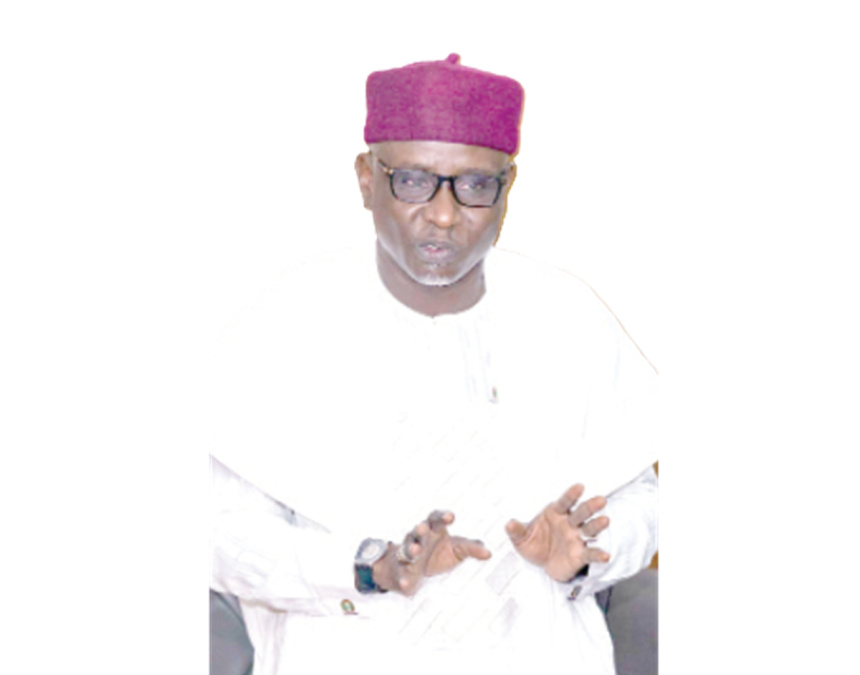In this exclusive interview with CHRISTIAN APPOLOS, the National President of the Senior Staff Association of Nigerian Universities (SSANU), Comrade Mohammad H. Ibrahim, speaks on the consequences of inadequate funding to Nigerian universities and the economy, and other related issues. Excerpt.
SSANU has often lamented issues around unpaid allowances, poor working conditions, and inconsistent government engagement. What are the most pressing challenges facing your members as workers in the Nigerian universities?
The Senior Staff Association of Nigerian Universities (SSANU) is one of the four university-based unions operating within Nigeria’s university system. Our mandate is straightforward: to provide a platform for non-teaching staff to voice their concerns and ensure that their welfare and wellbeing are not short changed either by the universities or the government.
Our major concern today is not new to Nigerians. We have been raising it repeatedly: the non-renegotiation of the 2009 agreement between the Federal Government and SSANU at that time. This agreement covers every aspect of our members’ welfare: salaries, allowances, and conditions of service.
That agreement is the cornerstone of what SSANU members collect today as salary.
Importantly, the agreement contains a clause that it should be reviewed every three years. This means that after 2009, there should have been reviews in 2012, 2015, 2018, and so on. Sixteen years have passed, and not only has the agreement not been reviewed, it has also not been fully implemented. Only parts of it have been acted upon.
The current renegotiation committee, chaired by Alhaji Yayale Ahmed, was revived almost a year ago. Apart from the inaugural meeting, there has been no progress. This mirrors what happened under the previous Muhammadu Buhari administration, where all attempts at renegotiation failed to produce results.
We are calling on the government to allow the committee to complete its work so that salaries, allowances, and conditions of service can be updated in line with current realities. Without this, the system will remain stagnant, and Nigerian universities will continue to lag behind globally.
In addition to this major issue, we face several other challenges: Delayed salary payments in some institutions. Poor infrastructure across campuses and Insecurity.
Many universities face constant threats of attacks. Just last week, bandits invaded the University of Abuja, abducted a member’s son, and ransom had to be paid. Similar incidents have happened in many other universities across the country.
We have been calling on the government to fund perimeter fencing for all universities and to allow trained campus security personnel to bear arms to protect staff and students. A university should be a space of serenity, safety, and free association. Without security, universities cannot function effectively.
Transportation has also become a huge burden on our members since the removal of fuel subsidy. Many cannot afford to fuel their vehicles, while those without cars struggle with high transport fares. The government’s CNG bus programme should be extended to universities so staff and students can travel between campuses and townships with ease. Many universities are located far from urban centres, and workers commute 30–50 km daily. The cost is eating deep into workers’ incomes.
Electricity is another critical challenge. A university’s three core mandates: teaching, research, and community service. These cannot be carried out without reliable power supply. Whether for classrooms, offices, laboratories, libraries, or ICT infrastructure and research centers, electricity is essential. You cannot have effective education without electricity.
Yet, in recent years, institutions like Ahmadu Bello University, University of Ibadan, University of Lagos, and University of Maiduguri have had their power cut off over unpaid bills.
The government has awarded some electrification contracts for universities, but these cover only a handful out of more than 200 public universities. Much more needs to be done to ensure that all institutions have reliable electricity.
How would you assess the current state of Nigerian universities in terms of infrastructure, staffing and academic resources? Are they meeting the needs of 21st-century teaching and research? What do you recommend?
Without fear of contradiction, I will say that most of the infrastructures in our universities are either dilapidated or not standard, especially the first generation universities.
In fact, without TETFund, many of our public universities would be in a dire state. Most of the major buildings you see in public universities across the country, be it Senate buildings, lecture theatres, laboratories, bear TETFund inscriptions. Very few are funded through the universities’ own budgets because those budgets are either too small or non-existent for capital projects.
The maintenance of older facilities is another problem. Many buildings and equipment are outdated, and replacement parts are no longer available in the market. Obtaining modern infrastructure is also difficult due to poor funding.
Library resources, ICT equipment, and laboratory facilities are insufficient. The government must understand that it cannot develop the economy without a well-educated populace, and you cannot have quality education without well-equipped, well-staffed, and well-funded tertiary institutions.
Nigeria’s education budget is still far below the UNESCO-recommended 26 per cent of the national budget. While there has been some improvement in recent years, we are still below 10 per cent. To meet global standards, this must change.
In addition to increased government funding, there should be stronger collaboration between industry and universities. Companies can fund research, endow professorial chairs, and support innovations that will benefit both the institutions and the private sector.
Employers of labour still complain about the quality of graduates from Nigerian universities. What do you see as the root causes and the solutions?
There will continuously be complaints by the employers of labour about the quality of graduates, as long as our universities are underfunded. The direct effect of poor quality education in Nigeria will always be evident in the quality of graduates, the main products of the universities.
A university should be like an industry producing skilled workers for the economy. If you invest in staff welfare, modern infrastructure, quality learning materials, and secure environments, you will produce high-quality graduates. The input determines the output.
To bridge the gap between academic training and workplace readiness, we need better funding for infrastructure and equipment. Improved welfare for teaching and non-teaching staff. Modernised curricula and training facilities, and security of the university community. Also, stronger industry–university collaboration to ensure training aligns with workplace needs.
ALSO READ FROM NIGERIAN TRIBUNE: Only 38.32% of candidates pass English, Maths as WAEC releases 2025 WASSCE results
Digital and other relevant skills are in high demand today across the world. Going by Nigeria’s dire need for development, jobs and economic growth, how on earth will the universities begin a thorough and sustainable curriculum that inculcates requisite skills in our varsity education without proper and adequate funding? We have been shouting that the government must galvanize stakeholders and be ready to lead by example if our education system must produce graduates that are fit to transform the country’s economy. The education sector is among the chief sectors that would provide Nigeria what it really needs to be what it desires. And massive investment and proper management must be put in place. This is the only way out for Nigeria. Fund the education sector, get it right, sit and watch our economy boom, infrastructure development will automatically come on board, and every other thing will follow suit.
The Nigerian Education Loan Fund (NELFUND) scheme, is believed to be part of government’s effort to fund education what is SSANU’s position on the scheme?
We are not opposed to the idea of student loans; such schemes exist worldwide. However, loans are not the most urgent need when universities still lack adequate infrastructure, security, and staff welfare. We believe bursaries and scholarships for indigent students should have been prioritised.
However, we are concerned about the composition of the NELFUND board. For us, the composition of the board is skewed. In the first place, the masses are not represented. The best way to have included the masses is to ensure that such pan-people organizations like the Nigeria Labour Congress which represents workers whose children would benefit from these loans, is represented in the board. Without labour and other civil society groups on the board, the masses have no voice in how the scheme is managed.
We recommend broadening the board to include labour unions, civil society organisations to ensure transparency, fairness, and accountability in loan disbursement and management. In fact, it’s high time the government considers it sacrosanct to include the NLC and TUC leadership in constituting the boards of agencies whose mandate and responsibilities directly provide services to the masses, be it workers, students, unemployed citizens, etc.
WATCH TOP VIDEOS FROM NIGERIAN TRIBUNE TV
- Let’s Talk About SELF-AWARENESS
- Is Your Confidence Mistaken for Pride? Let’s talk about it
- Is Etiquette About Perfection…Or Just Not Being Rude?
- Top Psychologist Reveal 3 Signs You’re Struggling With Imposter Syndrome
- Do You Pick Up Work-Related Calls at Midnight or Never? Let’s Talk About Boundaries







